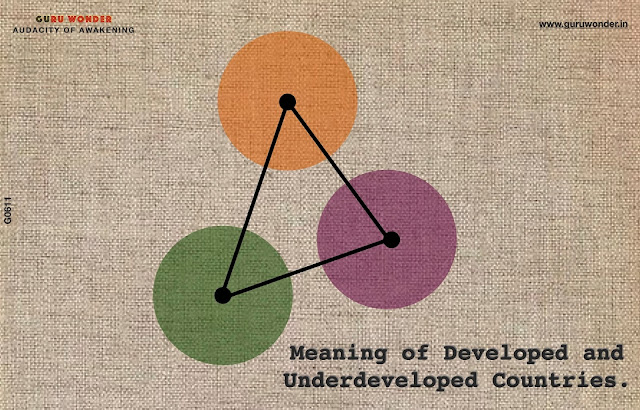Why is this significant?
Futurist Alvin Toffler in his seminal book 'The Third Wave' proposes how humankind developed and evolved in waves from early nomadic people, till today.
Ever wondered why some societies were rich and powerful and now not so?
In the earliest period nomadic leaders and tribes were those who had more livestock and members, to forage, hunt and fight.
In the first wave humans moved from being hunter/forager to farming. During this wave the wealthiest and most powerful were those societies that owned and controlled the maximum amount of fertile land. Today societies that are predominantly first wave are amongst the poorest countries because they are seen as the industrially undeveloped economies.
In the second wave nations that industrialised, meaning those societies that set up factories and controlled means of production became more powerful and wealthy. They are called the (industrially) developed world. This is why Europe was able to colonise the first wave world. Later on America Russia and Japan also industrialised and became powerful and wealthy.
The Muslim world led by the Ottoman and the Mughal empires dominated by orthodox clergy did not industrialise and were finished. Even in the Christian world Catholic countries controlled by the Vatican fell far behind Protestant societies.
Those that are partially developed are called developing countries. India and China were the wealthiest countries in the first wave for they had not only lots of fertile land, but also skills and capacity for manufacturing a wide range of quality goods for nearly 1800 years. They however used manual labour whereas the industrial world used steam, fossil fuel and electricity to mechanise and industrialise their economies.
The third wave is the post industrial era, where wealth and power stems from organisation and societies who possess, deploy and control information, and knowledge advantageously.
Look at the list of the World's richest 5000 people and organisations, you will find very few people who are agriculturists. It's possible to find a sizeable portion of people who are industrialists but most of the people are those that deal in technology, finance, knowledge and information of all kinds.
Every country is a mixture of the three waves. Some regions and societies are developed while some are others under developed.
Developed countries like Germany and Japan have insignificant percentage of their GDP contribution and population involved in agriculture. Formally where 90% of the population were involved in agriculture, now less than 3% work on farms and related work.
South Korea, and China have gone from underdeveloped impoverished countries to developed countries by rapid industrialisation and now moving further rapidly into 3rd wave of post industrialisation.
Industrialisation is not the only way for a country to become prosperous.
Take the case, of The Netherlands. It is a developed nation even though it has a large agricultural sector. They use technology to have the most advanced and productive agricultural output in the world.. They are also an advanced third wave economy offering all sorts of products services.
Also consider the case of telecom in a country like India. Its late industrialisation in telecommunications has allowed it to pole vault 2nd wave industrialisation of hardwired telephone cables to jump straight to 3rd wave mobile telecommunication.
The late entry into the field allows India to catch up with the 3rd wave world and at relatively low costs, because there is insignificant old infrastructure investments whose legacy costs need to be recovered. That is why India can afford to provide one of the lowest telecommunication costs in the world, today.
Why is this subject important?
The leaders, will always be those that, are significantly 3rd wave economies and organisations.
As countries emerge from COVID-19 crisis, and have to adapt to a new world, they have to reset the way they think and function. Every crisis is an opportunity in disguise.
What are the strengths, weaknesses of each society, and region that will permit them to take advantage of the new opportunities and minimising the likely effects of threats.
Blindly copying others is not a good idea because those who seemed highly successful till now are themselves faltering if not collapsing.
Chinese communist leaders revered Soviet Union and said 'What the USSR is today, China will be that in 30 years'. The USSR collapsed and imploded under the unsustainable ideology of communism and China will do so soon.
One nation's misfortune is another's opportunity. The world's disgust with the PRC is already generating great opportunities for countries like India. Much of that will be lost unless leadership changes the way they think and function.
The government bureaucracy and most leaders be they political, industrial, religious, social etc. frozen in time and thought are themselves the main problem. No development can occur using first wave thinking to achieve second and third wave results and prosperity.
Leadership in business, education, politics, government, finance, etc. will need to rethink and reform the way they are organised, manned and trained to cope with the great opportunities that are bound to rise post this and every other crisis.
Are we preparing ourselves for a brave new world?
__________________
Written and Posted: July 2020 by ~ Gurvinder Singh.
You can also read the article and post a comment at: Blog
Guru Wonder:
Note:
There are some countries that are not industrialised but are rich in energy or mineral resources. They too are clubbed as 'developed countries', because of their high Human Development Index. Typical are countries like the oil rich Gulf rich states like Saudi Arabia, The UAE, Kuwait etc.
Related Links:
The Third Wave - Wikipedia
The Third Wave - explained - Alvin Toffler
Ref: G0611

Comments
Post a Comment